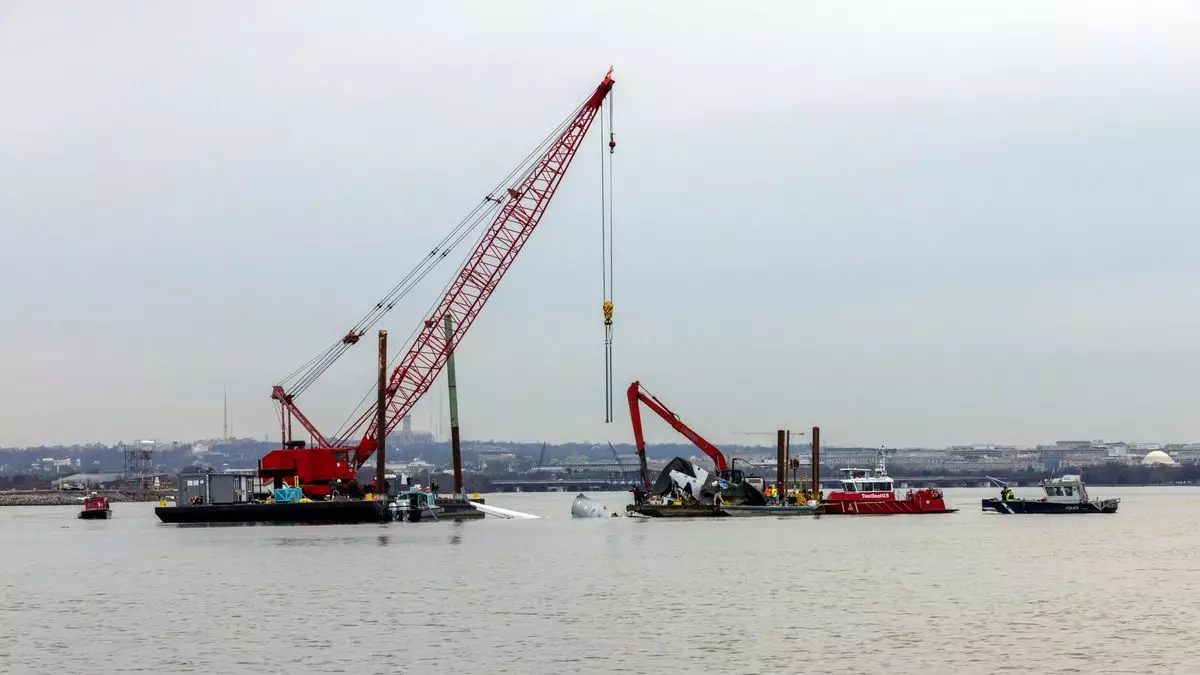The National Transportation Safety Board (NTSB) has long been recognized as the authoritative body responsible for investigating aviation accidents in the United States. Established with the mandate to conduct thorough investigations, the NTSB focuses on uncovering the factors leading to accidents rather than assigning blame. Its reputation as the “gold standard” of air safety investigations is underscored by its commitment to impartiality and data-driven decision-making. However, the integrity of its investigative process is now called into question, especially in light of political interference that could potentially undermine its foundational principles.
The tragic collision between an American Airlines-branded regional jet and an Army Black Hawk helicopter on January 29, which resulted in the loss of all 67 lives on board, has thrust the NTSB into a politically charged environment. Following this disaster, President Trump rushed to comment on the incident, suggesting that diversity initiatives may be a contributing factor to the crash. Critics argue that such premature speculation from the highest office in the land adds unneeded political pressure to an already fraught investigation.
Mark Jones, a political scientist at Rice University, articulates significant concerns regarding this politicization. By calling attention to specific policies without concrete evidence, Trump not only complicates the NTSB’s work but also sets a dangerous precedent for future investigations. Questions arise regarding the potential ramifications for agency credibility and independence, particularly if the investigation ultimately contradicts the president’s statements. The specter of political retribution looms large; if the NTSB finds that factors other than DEI policies were at play, the agency may face scrutiny that affects its funding and operational capabilities.
The independence of the NTSB is a vital component of its functionality. Composed of a five-member board appointed by the president and confirmed by the Senate, the agency’s structure is designed to allow it to operate without direct political influence. Historically, this independence has ensured that investigations are free from partisan agendas, which is essential for maintaining public trust in the conclusions drawn. Nonetheless, with Trump previously dismissing members of other independent agencies, it raises alarms regarding whether this trend may impact the NTSB.
David Clark, a political science professor at Vanderbilt University, identifies the concerns stemming from this intersection of politics and safety investigations. If maligned interpretations of investigations lead to political fallout, the NTSB’s ability to forge ahead without external pressures may be compromised. This scenario is compounded by the fact that Congress has the power to scrutinize the agency’s funding requests, potentially weaponizing budgetary processes against it. Such dynamics would not only affect the NTSB’s credibility but could also hinder its capability to operate effectively amidst conditions of heightened political scrutiny.
The NTSB has made concerted efforts to reaffirm its commitment to unfettered investigation processes. Board member J. Todd Inman publicly committed to adhering to the facts, stating their unwavering focus on accuracy as they delve into the circumstances of the crash. These assurances represent an attempt to delineate the agency’s mission from the political sphere. Nevertheless, the broader implications of the president’s prior remarks cannot be ignored. NTSB chair Jennifer Homendy’s indirect response to inquiries about the appropriateness of Trump’s comments underscores the tension between political discourse and the investigative process.
In an environment where media narratives and political assertions can shape public perception, the NTSB’s ability to pursue truth may become increasingly challenging. The scientific rigor inherent in investigations must contend with the immediacy and often sensational nature of political commentary. This veritable tug-of-war highlights the delicate balance organizations like the NTSB must maintain in remaining both accountable to the public and insulated from external influences.
As the NTSB grapples with the consequences of recent events, the fundamental question remains: how will political engagement impact the efficacy of air safety investigations moving forward? The agency’s historical reputation hinges on objectivity, and proactive assertions of causation by political figures could jeopardize that perception. The intersection of politics and safety investigations requires sober dialogue and critical scrutiny of assertions made by public officials, ensuring that the integrity of the investigation process remains sacrosanct.
In this new era where the independence of safety investigations faces unprecedented challenges, it is crucial for stakeholders—government officials, the public, and the NTSB—to call for transparency and accountability. Upholding the dignity of the investigative process safeguards public trust and ensures that lessons learned from tragedies like the recent crash serve to enhance safety protocols rather than wedging them into political narratives. The outcomes of this current investigation will likely resonate beyond this single incident, setting the tone for how future governance and critical safety operations intersect.

